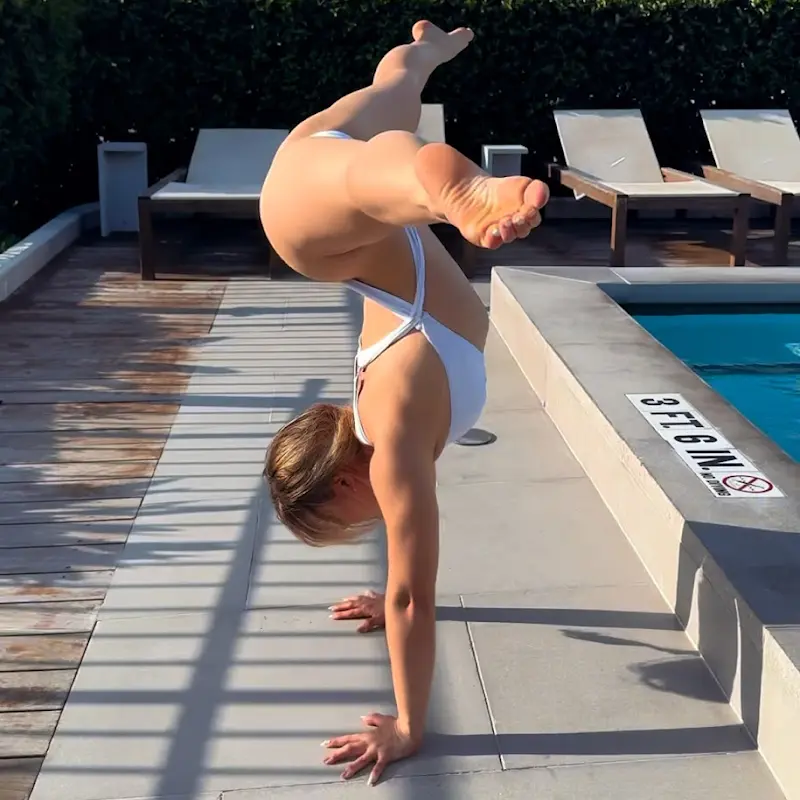
“How often do you…?” is one of those small questions that opens up surprisingly big answers. It’s a phrase we hear in classrooms when learning a new language, in conversations between friends trying to get to know each other better, or even in the quiet self-reflection we do when we evaluate our own habits. At first, it sounds like a simple inquiry about frequency, but the truth is, the answer often reveals our values, our routines, and sometimes even the hidden parts of ourselves.
When I think about this question, I imagine someone asking me: “How often do you read? How often do you exercise? How often do you take time to just breathe?” Each version of the question pulls my attention toward a specific habit, a slice of my daily life, and forces me to acknowledge whether I’m living in alignment with what I say matters to me.
The power of small habits
“How often do you…?” is essentially a question about habits. Habits are the invisible building blocks of our lives. They shape not only our days but also our identities. If I say, “I read every night before bed,” I’m not just talking about frequency. I’m saying, “I am a reader, someone who values books and stories.” If I say, “I rarely exercise,” I may be admitting that physical health hasn’t been a strong priority in my life.
Psychologists often remind us that our habits define our long-term outcomes more than one-time decisions do. Eating one healthy meal won’t make you strong, but eating well most days of the week will. Exercising once won’t make you fit, but exercising consistently, even in small ways, changes your body and your energy over time. That’s why asking “How often do you?” matters—it’s not about a single action, but about the rhythm of your life.

Common questions we ask
Let’s imagine a conversation with this phrase:
- “How often do you call your parents?”
- “How often do you smile at strangers?”
- “How often do you allow yourself to rest?”
- “How often do you say thank you?”
Each question digs into a different dimension of human connection, kindness, and self-care. When someone asks, “How often do you call your parents?” it’s not just curiosity—it’s about love, responsibility, and staying connected. When someone asks, “How often do you rest?” it reminds us that rest is not a luxury but a necessity.
Reflection through frequency
I think one of the most meaningful ways to use the question is to turn it inward. For example:
- How often do you appreciate what you already have?
It’s easy to chase after goals, money, or success, but gratitude grounds us in the present moment. - How often do you forgive others—and yourself?
Holding onto resentment can weigh us down more than we realize. - How often do you step out of your comfort zone?
Growth happens when we try new things, even small ones like talking to a new person or exploring a different hobby.
Asking ourselves these questions can guide us to live more intentionally. Sometimes the answers surprise us. Maybe you think you rest often, but then you realize that your “rest” is actually scrolling endlessly on your phone, which doesn’t restore you at all. Or perhaps you discover that you haven’t told your loved ones how much they mean to you in weeks, even though you feel gratitude daily.

Cultural connection
Interestingly, “How often do you…?” is also one of the first structures taught in language learning. It’s practical, easy to grasp, and deeply useful in everyday life. For example, in English classes, learners practice:
- How often do you play sports?
- How often do you eat out?
- How often do you watch TV?
By answering these, people don’t just learn grammar—they share pieces of their life. A student from Japan might say, “I eat sushi twice a week.” A student from Brazil might say, “I play football almost every day.” Through these answers, culture shines through. You can learn so much about someone by hearing about their routines.
The rhythm of life
Life is often described as a song or a dance, and in that metaphor, “how often” is like the beat that structures everything. Think about it:
- If you laugh daily, your life feels light.
- If you cry often, it reflects your sensitivity or perhaps a season of difficulty.
- If you create something weekly—a painting, a poem, a meal—you become an artist of your own life.
It’s not just the actions themselves but their frequency that determines the rhythm of your existence. Too much work and not enough play, and the rhythm feels unbalanced. Too much distraction and not enough focus, and you lose track of what matters. The balance of “how often” in each area makes life either harmonious or chaotic.
The danger of “not often enough”
Of course, there’s another side to this question. Sometimes we avoid asking ourselves “How often do you?” because we know the answer will be uncomfortable.
How often do you exercise?
Maybe the answer is, “Not nearly enough.”
How often do you listen deeply to your loved ones?
Perhaps the answer is, “I’ve been too distracted.”
How often do you rest without guilt?
For many people, the answer is, “Rarely.”
Admitting these truths can sting, but it’s also the first step to change. Recognizing the gaps between what we want and what we do gives us the chance to adjust. The good news is that even small changes in frequency can transform our lives. Calling your parents once more each week. Drinking one extra glass of water daily. Taking one moment of gratitude each night. These little adjustments accumulate into a new lifestyle.

Building better answers
One of the most empowering things we can do is take ownership of our answers to “How often do you?” Instead of saying, “I wish I did this more,” we can start small and make it happen.
For instance:
- If you want to read more, commit to five minutes a day.
- If you want to exercise, begin with a short walk three times a week.
- If you want to express love more often, set a reminder to send a kind message each day.
Over time, those small choices shift your identity. Suddenly, you’re not someone who “wants to read”—you’re a reader. You’re not someone who “wishes they exercised”—you’re someone who moves regularly.
A personal perspective
If I ask myself, “How often do you…?” a few answers stand out.
- How often do I write? Almost every day. Writing helps me clear my mind and capture my thoughts.
- How often do I express gratitude? Not as often as I’d like. I think it, but I don’t always say it.
- How often do I connect with nature? Weekly, but I wish it were daily. There’s something healing about fresh air, trees, and open skies.
- How often do I forgive myself for mistakes? Rarely—and that’s something I need to work on.
Each answer shows me not only what I do but who I am, and who I want to become.
Conclusion
“How often do you…?” is more than a question about habits. It’s a mirror. It reflects what we prioritize, how we spend our time, and ultimately, who we are becoming. When we ask this question—whether to others or to ourselves—we open the door to self-awareness and growth.
So next time you hear it, pause before answering. Don’t just think about the frequency—think about the meaning. Think about whether your answer aligns with the life you want to live. Because in the end, the story of our lives is written in the rhythm of what we do often, what we do rarely, and what we choose to never do at all.


